How to Learn Polish Fast: Practical Tips for Beginners
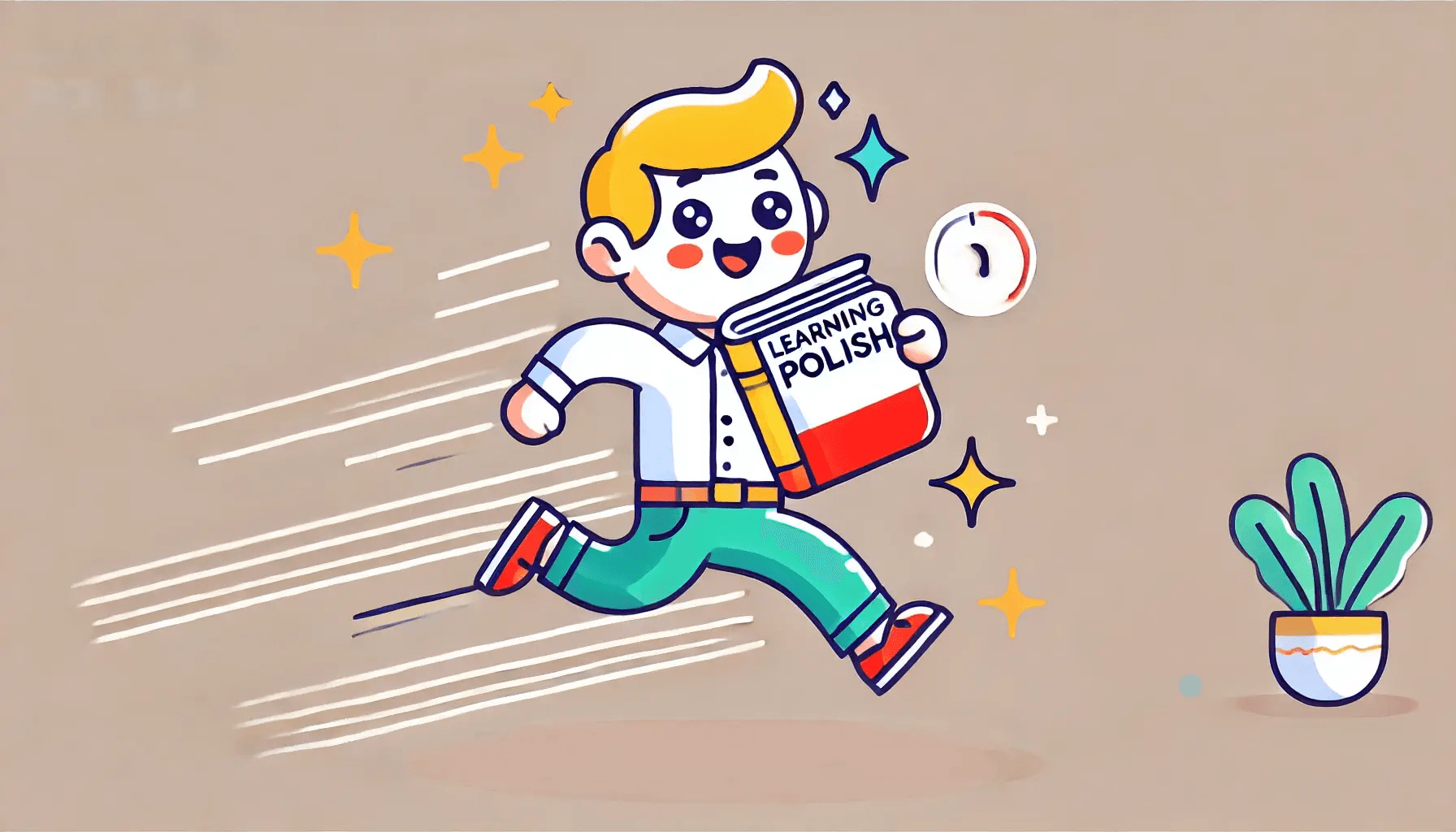
Learning Polish can feel like a big challenge, but it’s absolutely possible to make steady progress with a few focused strategies. Here’s a guide that’s worked for me with other languages, like Japanese and Korean. It’s less about speed and more about creating a routine that feels sustainable and rewarding.
1. Surround Yourself with Polish Every Day

When it comes to learning Polish fast, there’s no substitute for immersion. You’re aiming to get comfortable with the sounds, vocabulary, and rhythms of the language, so try to find ways to surround yourself with Polish every day. For me, listening to music and watching shows in Korean—sometimes even just in the background—has been incredibly helpful.
If you’re just starting out, tune into Polish content like the Top 50 Poland playlist on Spotify or watch some Polish movies and TV shows on Netflix. The idea isn’t to understand everything right away; just let the language start feeling familiar.
When I moved to a different country, listening to the local language was tiring at first, even in short bursts. Over time, I built up more resilience, which helped me recognize familiar words faster.
2. Keep It Manageable with Gamified Learning Apps
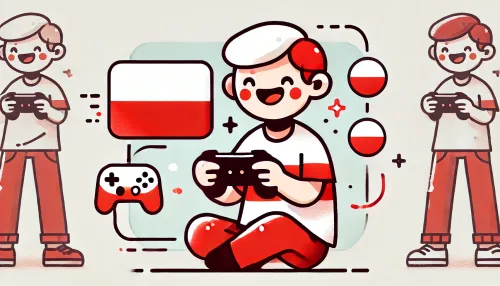
Small goals go a long way. Apps like Duolingo are great if you’re just getting started with Polish because they’re designed to make daily practice easy and fun. I used Duolingo while learning Italian, and having a short, structured exercise every day really kept me on track. It was even more rewarding when I actually went to Italy and was able to understand some words!
Duolingo is super addictive. Sometimes you need that little push. If you’re interested in how gamified apps help build routines, this article from Psychology Today explains more about the science behind it.
3. Strike a Balance Between Comfortable and Challenging Material
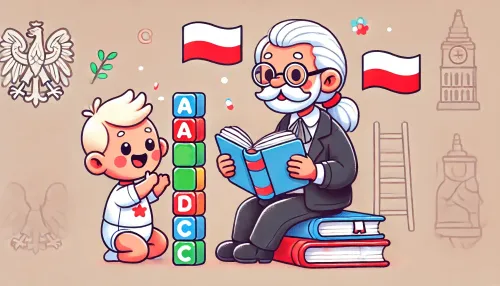
It’s easy to stick to beginner content, but I found that real growth happens when I mix in some challenging material. When I was learning Japanese, I used young adult novels that were above my level but still manageable.
For Polish, you could try children’s books, news articles, or even short stories. I used some of these resources in my language journey, and others are ones I found that suit Polish learners well, with suggested difficulty levels (CEFR):
- Readlang – Suitable for A2 to C1 levels, as you can upload your own materials tailored to your reading level, and it allows you to create flashcards directly from the text for customized learning.
- Quizlet – Flexible for A1 to C1 levels, as you create your own flashcards, making it adaptable for any vocabulary set or grammar you’re working on.
- OKO.press – Recommended for B1 to C2 levels. It’s a Polish news site with articles on current events, perfect for those looking to improve their comprehension with more complex and authentic topics.
- Bajki do czytania – Best for A1 to B1 levels, as it offers children’s stories with simpler language, ideal for building confidence and familiarizing yourself with everyday vocabulary and structures.
Gradually, you’ll find yourself needing the dictionary less and understanding more naturally.
4. Build Your Intuition with Extensive Reading
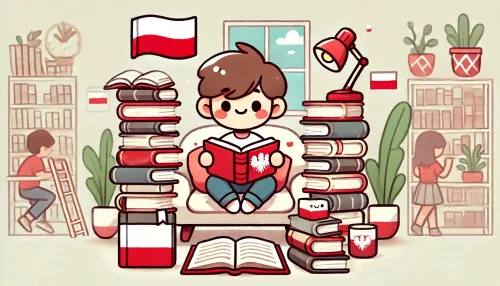
Reading is a great way to start internalizing grammar and vocabulary in context. Instead of focusing on memorizing isolated words, try reading at your level and absorbing the language naturally. Websites like Language Quest have text in both English and Polish that are categorized by difficulty. If you feel it’s too hard, go with easier text! If you are ready to graduate, move on to something more difficult. Slowly you will start to be able
5. Use Flashcards to Learn Vocabulary
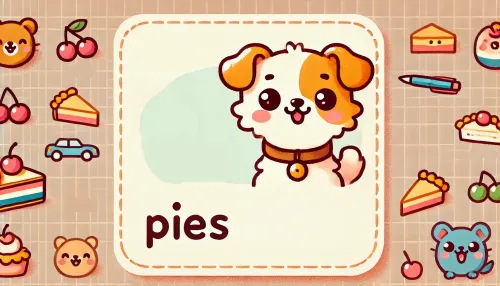
Flashcards are a powerful tool for vocabulary retention, especially if they’re tailored to your learning needs. After experimenting with various tools, I usually come back to Quizlet for its ease of use and customization. If you’re on a budget, Anki is a solid choice with extensive functionality, though it has a steeper learning curve. Initially, I found Anki challenging, but with time, it helped me master thousands of words. Anki also offers a variety of plugins that adapt to different learning styles, including cloze-based learning.
Rather than relying on pre-made decks, I recommend creating flashcards from vocabulary you encounter in your reading and listening. This way, you focus on words you genuinely need and will use frequently.
Ready-to-Use Flashcards:
If you’d like to try some pre-made decks, here are a few highly rated ones:
Useful Anki Plugins:
For Anki users, these plugins can enhance your study experience:
- Ankimon – Turns your Anki interface into a Pokémon game for added fun!
- Review Heatmap – Visualizes your progress over days and months, helping you stay motivated.
- FSRS Helper – Balances review sessions, preventing overwhelming review days by spacing out cards more effectively.
How Long Does It Take to Learn Polish?
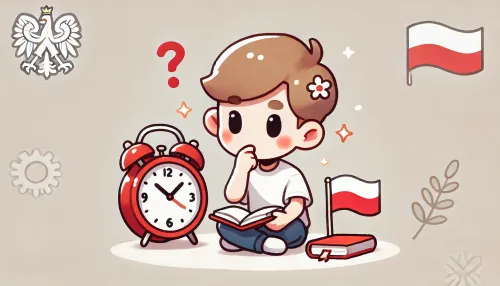
“How long does it take to learn Polish?” is a common question, and it really depends on how much time and effort you put in. If you’re consistent with immersion, practice on an app, and some regular reading, many people reach a conversational level in about 8-12 months. Everyone’s different, so don’t stress too much about the timeline—just keep going at your own pace.
Final Thoughts
Learning Polish takes time and patience, but breaking it down into small daily habits, mixing in some challenging material, and focusing on vocabulary that’s relevant to you can make the whole experience feel a lot more doable. These are the same strategies I’ve used with other languages, and they’ve been a big help in keeping my motivation up and making steady progress.
FAQs
- How long does it take to learn Polish? – With consistent study and immersion, a lot of people reach conversational proficiency in around a year. Mastery, of course, takes longer.
- Is Polish hard to learn? – Polish can be tricky due to its grammar and pronunciation, but regular practice makes it manageable.
- What’s the fastest way to learn Polish? – Daily immersion, a structured app like Duolingo, and extensive reading can all help.